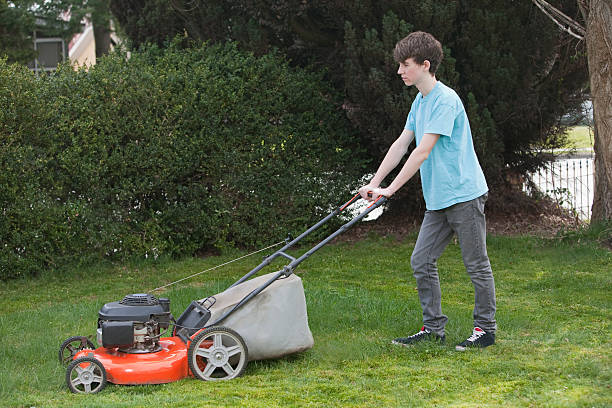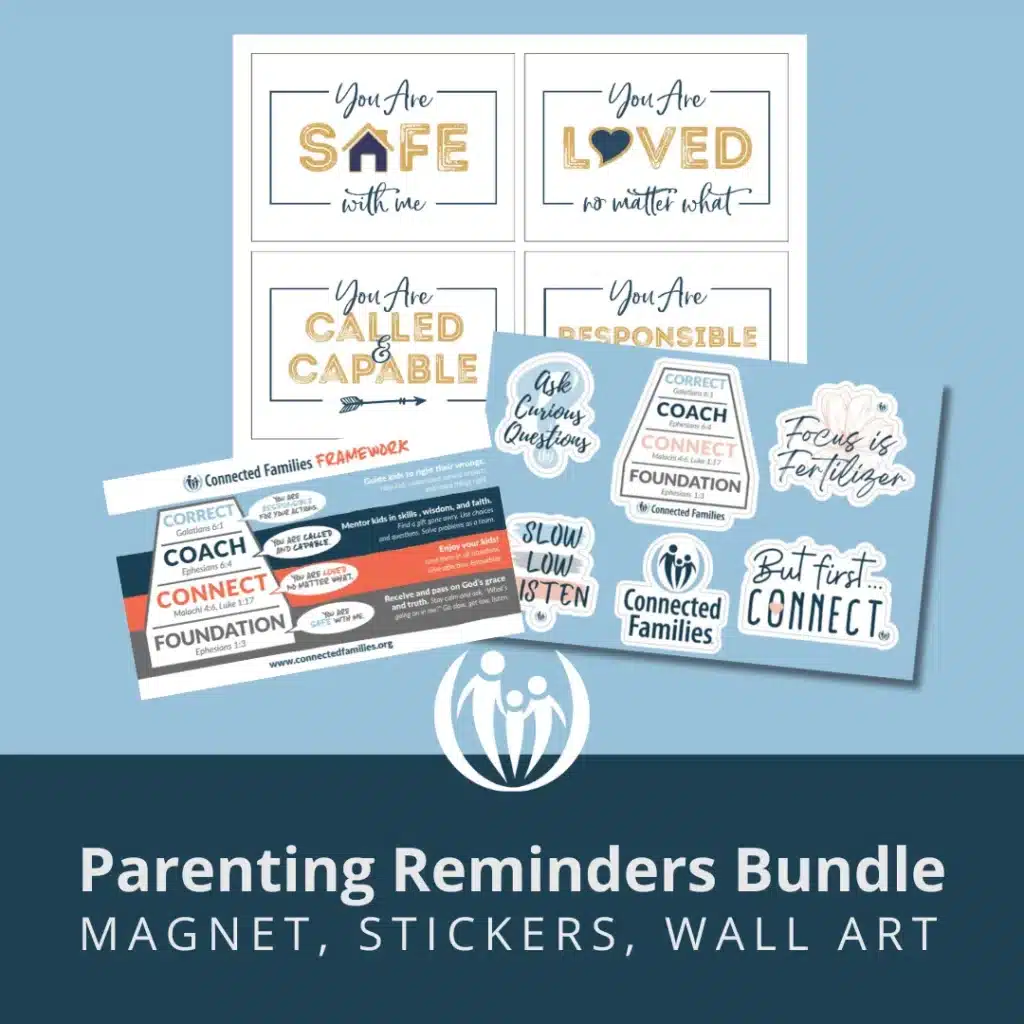
Rewards for Kids: 9 Wisdom-Filled Guidelines to Get Beyond Bribing
A research- and biblically-based perspective on “bribing” kids

When children lack motivation for important tasks, parents often wonder whether using rewards for kids is appropriate or simply bribery. While rewards for kids can provide benefits through positive reinforcement, they can also have potential disadvantages. The key is developing a healthy perspective on which specific rewards make sense for your family. Effective rewards for kids teach children to value qualities like hard work rather than just earning external prizes.
Sometimes kids just aren’t very motivated for certain tasks. Suppose you’ve got a child who seems unmotivated to accomplish tasks that you need them to learn to do. In that case, you’re probably going to wrestle with some important questions: “Is it okay to bribe my kids?” or “What do rewards for kids really teach my kids about the ‘undesired’ activity?”
It’s essential to explore these questions because there can be significant benefits to using positive reinforcement and rewards for kids. However, there can be disadvantages to rewards as well.
If you’re feeling stuck about how to help your kids do the right things for the right reasons or if you feel all that’s left to try is to “hang a carrot” in front of them, this article is for you! I am not here to tell you that rewards for kids are inherently good or bad. Instead, I want to move you toward a healthy perspective that will guide you in knowing which rewards make sense. After all, the ultimate goal of using rewards is not to motivate kids to get something (money, screens, food), but to value something (hard work, diligence, being a blessing to others).
Should you use rewards for kids?
As a parent you have good intentions to help your child learn responsibility and good behavior. You want them to know that in real life there are benefits that come along with working towards a goal or reward. This can be a bad thing or a good thing, depending on what your mindset is about the rewards.
In our minds the most important question to ask when putting any teaching or training method in place is this: “What is my child truly learning based on the method I’m using?” And secondarily, “How do I know what they’re learning?”
The most obvious disadvantage to using positive reinforcement
One parent was frustrated with how inconsistently kids’ chores were getting done, so she started a rewards chart with payment for the jobs accomplished. At first, there was more work and less nagging! Yay! But over time, the motivation to do extra jobs that were not paid jobs faded… “But it’s not my day to clean the living room floor!” Back to square one!
On the other hand, rewards are certainly a part of our everyday lives as adults. We work to bring home a paycheck and are rewarded for hard work through promotions, bonuses, or other incentives. We reward ourselves for accomplishing certain tasks around the house, perhaps with a tasty snack to refuel or certain fun activities.
What does research say about using rewards for kids?
Rewards can be a great thing! The research on rewards is mixed, and there is a considerable debate about this topic. Certainly behavior modification can be effective, and some research claims that rewards can be an extremely helpful tool to encourage kids.
Clinical psychologist David Anderson, senior director of the ADHD and Behavior Disorders Center at the Child Mind Institute in Manhattan, advocates for using rewards in a positive way to help children develop targeted behaviors and habits. “As those behaviors become more habitual, you’re either giving rewards less frequently, or you’re switching to a new focus of behavior,” he explained.
“Yale’s Virginia Shiller says, if your child is struggling to do something she really needs to do, either because she doesn’t like it or doesn’t yet have the skills needed to enjoy it, that’s a good reward opportunity.” Shiller also states that rewards can provide “a bridge to give [kids] a reason to try it—and hopefully, they’ll eventually feel competent and successful, and that [feeling] will take the place of the rewards.”
That time when Jim bribed a teen he was working with
I (Jim) remember a time in my youth work days when I bribed a teen. Nathan was an influential young man. Just not always in constructive ways. His behavior was routinely disruptive in our weekly groups.
It occurred to me that, despite the consequence of being removed from the group each week, he was still being rewarded by the attention he received from both staff and his peers. It gave him a sense of power. No amount of telling him to stop or suggesting he’d be removed from the group was a greater payoff to him than just the attention that he got by misbehaving.
I wondered what reward might be a more effective motivator for him. So I bribed him. I told him that if he was able to behave well in the group session I would take him to dinner at his favorite restaurant. For me, it would be well worth the price, regardless of the restaurant. Admittedly, though, most teens’ favorite restaurant is Chick-fil-A, Taco Bell, or McDonald’s, so I could afford it.
Did Jim’s bribery work?
Sure enough, Nathan controlled himself that night. Not only that, but he contributed wonderfully to the group session, affirming and supporting his peers.
Afterward he asked, “Does this mean you’ll be bribing me like this every week?”
I said, “No, I don’t need to bribe you anymore because your behavior confirmed that what I thought all along is true.”
“What’s that?” he wondered.
“That you are capable of being a respectful group member. How does it feel to know you can succeed in this group?”
He shrugged.
I asked some of his peers, “What was it like to have Nathan in the group tonight?”
They chimed in, “He was great!” and “He was so supportive. I didn’t know he could do it.”
Nathan puffed up. He loved this affirmation. It felt good. A new reward.
The turning point
That night was a turning point for Nathan. The goal of my “bribe” was not to simply pay Nathan for behaving well. I wanted to use the reward of dinner to create an opportunity for Nathan to experience the more natural rewards (natural impacts) of constructive behavior. It turns out that the ultimate reward of positive affirmation from his peers was a far better teaching tool than the punishment of potential removal from the group.
Just about every parent uses rewards to help motivate their kids, with the hope that the rewarded behavior will become a valued habit. And even if no immediate concrete reward is offered, we ourselves are motivated to do what we do largely, if not entirely, by the reward of personal satisfaction. In some shape or form, then, rewards are the fuel that keeps the world turning.
Reasons to think twice before using rewards for kids
On the downside, rewards backfire when they cause kids to overly value whatever the reward is (money, toys, screentime, food) while devaluing whatever the task is (chores, “good behavior,” homework).
In Alfie Kohn’s book, “Punished by Rewards,” he discusses how both rewards and punishment can be viewed as manipulating children’s behavior. In an interview, he discusses the importance of naturally and intrinsically motivating kids. Kohn remarked that “one of the most thoroughly researched findings in social psychology is that the more you reward someone for doing something, the less interest that person will tend to have in whatever he or she was rewarded to do.”
Kohn’s underlying message is this: “You wouldn’t want to do this undesirable thing, so I have to motivate you with this more desirable thing. What is valuable is the reward, not the action.”
Though some rewards can be helpful, some can ultimately be demotivating.
Research tends to support this. For example:
- Kids become less likely to help others if they are given material rewards for doing so.
- Children offered two equally appealing snacks as rewards for finishing some unappealing food ended up devaluing whichever food was used to obtain the other (“Eat this first, then you can have…”). The message is: “You’ve gotta eat the yucky stuff to get the good stuff.”
- Children who received an expected reward for engaging in a creative play activity showed significantly less interest in that activity than they had shown before the study.
What does God teach us about rewards?
For us the real question isn’t, “Should I use rewards?” Instead, we ask, “How can I help my kids come to understand the real-life benefits/rewards of behaving according to a biblical value system?”
There’s no evidence in the Bible that when we do something good…bah-dah-bing… the angels rejoice and drop an immediate, tangible blessing in our laps. There is a general reward in heaven for a diligent, devoted heart. There are positive natural impacts for virtues including kindness and integrity. The Bible references rewards such as fruitfulness, honor, and a crown of life as a reward for perseverance, humility, diligence, and faith.
Ultimately, the Bible emphasizes our identity in Christ as the foundation for our behavior and choices, rather than external rewards. Do your kids know and believe: “I am a child of God involved in God’s good purposes”? The disciples were included in discovering and participating in something bigger than themselves – an eternal Kingdom. They were eager to do what Jesus asked them to do as part of their role in God’s Kingdom.

How loving relationships can encourage diligence
Another biblical perspective is that diligence, both in character and in deed, is rooted in the context of loving relationships. Otherwise, we may run the risk of simply becoming a drill sergeant, teaching kids to do chores for the sake of doing chores, get good grades for the sake of good grades, or exhibit good behavior for the sake of good behavior. Getting kids to accomplish tasks takes second place to our relationship with them.
The parable of the bags of gold illustrates this well. The master puts the faithful servants in charge of more after they were faithful with a little. But interestingly, the greatest reward they received was within their relationship with the master: “Come and share in your master’s happiness” (Matthew 5:21, 23). The master wasn’t giving out chore chart incentives; he was giving of himself. He wanted them to experience the joy of rewards within a relationship.
What if our kids saw us more as an ally, a joyful and affectionate coworker, and less as a taskmaster?
Jesus modeled this. He didn’t simply delegate orders or send out His disciples to stumble through their assignment. He walked with them in loving relationship. It wasn’t just about getting the task done.
We tend to work more efficiently and with greater motivation when we work for someone we respect and feel respected by. Maybe that’s why God calls us, in whatever our task, to work for the Lord and not for people. He knew that humans would make imperfect bosses, managers, leaders, and parents. He wants us to know that we are always working for someone who will love us, treat us well, see our good work, and walk in relationship with us as we do the work.
So, let’s combine what we learned through research and scripture into some practical ideas for you!
9 practical guidelines for using rewards for children
What does this look like practically? How do we motivate kids with effective rewards in practical ways within the context of a safe and connected relationship?
One effective biblical sequence to help kids learn behaviors based in faith and wisdom is: Motivate, model, practice, praise. This model of training kids is adapted from Mark Holman’s Faith Begins at Home. You will see these principles in the practical bullet points below:
1. Proactively build motivation and the value of the skill or attitude.
Be aware. Your reward (as well as your facial expression and tone of voice) may be communicating: “You wouldn’t want to do this if I didn’t reward you.”
Thoughtfully consider how each task might fit into Kingdom purposes. At the Jackson house, our very distractible creative kids struggled with mundane chores. We helped them see the Kingdom purposes in everyday tasks. For example, cleaning the house to provide hospitality for others, or learning to cook to be a blessing to those around them. We encouraged our kids to keep a reasonably neat room/work area, so their messes would not distract from God’s specific calling on their life. Then, when we occasionally used rewards, our kids had context for the importance of what they were learning.
2. Avoid rewarding with food or screen time.
Using food and screens can create an unhealthy value of, and relationship to, those things. You might be thinking, “Seriously, what else is there?”. In my (Lynne’s) coaching, I actually had a parent, whose kids hadn’t been given technology access yet, say, “I have no idea how to motivate my kids since we don’t reward them with screen time.”

I know this is a hard one, because food and screens are so motivating for kids. However, the research is limited regarding the long-term impact of managing behavior through these appealing items. So, get creative and relational about fun activities kids can look forward to after completing challenging tasks. Help kids understand that it is a natural life rhythm – to work hard and then have fun.
3. Do not take away rewards already earned.
Scripture is not clear on whether a reward that has already been earned can ever be taken away. However, examining the list of lauded saints in Hebrews 11, it appears that huge mistakes and sins did not disqualify them from the ultimate reward they would enjoy as part of the body of Christ. In any event, no one asks for your paycheck back if you make a big mistake at work, so don’t do this to your kids. It’s very demotivating for them to have worked hard for a reward and then have it taken away.
4. Model the value and enjoyment of your own job and household responsibilities.
As adults we are rewarded by a paycheck in our jobs. But the goal of hard work is not prosperity in the eyes of the world, but the benefits of working with integrity and serving well. It also yields the wonderful benefit of being able to provide for your family and give to others.

Do your kids know this? Do you talk about it with them? How do your kids interpret your attitude towards your job? Do they see you regularly grumbling about your job or household chores? It’s tougher to model these values if you work in a job that’s frustrating or unfulfilling. Still, you can model that no matter how unenjoyable the job, you are motivated by your relationship with Jesus to do your best. Every task has an eternal purpose because our souls are eternal. Your diligence demonstrates that the most menial job has value because the people who are benefiting from that service have value.
5. Model setting goals and rewarding yourself.
A key phrase at Connected Families is this: “Lead your family with grace.” When it comes to grace, we can’t take our kids somewhere we haven’t been. Have your kids ever seen you work towards a goal and reward yourself for it? Before you start a reward program for them, try having them watch you rewarding yourself and enjoying it!
Need some ideas for personal goals/rewards to model? Goals both you and your child benefit from?
- Implement a self-calming strategy
- Set a goal to affirm your child more often
- Try asking questions more often than you give directions
Keep track of how many times per week you’ve successfully practiced these skills. When you reach a goal, reward yourself with a walk with a friend, buy yourself flowers or plants for the garden, buy or download a book you’ve wanted to read, or some other refuel-your-soul treat.
Let kids see first-hand the benefit of your work toward a relational goal. Here is a fun chart to make it easy to get started, as you model working towards goals both you and your child will benefit from. Set up a fun reward for yourself and let your kids see you enjoy it. Then, at some point, you can follow this up by asking your child, “Is there something you’d like to work on?” Followed by, “How will you reward yourself?”
6. Motivate kids by partnering with them.
Avoid trying to manage behavior solely through rewards. It’s tempting, as parents, to use rewards as a method to control kids’ behavior. However, the more you collaborate and your kids own the idea, the more they will embrace its value.

From The Secrets of Happy Families: “Scientists at the University of California and elsewhere found that kids who plan their own time, set weekly goals, and evaluate their own work build up their prefrontal cortex and other parts of the brain that help them exert greater cognitive control over their lives. These so-called executive skills aid children with self-discipline, avoiding distractions, and weighing the pros and cons of their choices… By choosing their own rewards, children become more intrinsically motivated to achieve them. Let your kids take a greater role in raising themselves.”
7. Make it fun!
Making a reward program fun helps to prevent the idea that the rewarded skills or behaviors are undesirable. Kids are much more likely to believe “we are learning something valuable together, and having fun doing it.”
This story about a family’s creative, fun reward program may give you some ideas. As the COVID pandemic set in, the Berg family was stressed by the “everyone-is-home-24-7” mess and crankiness. Mom announced, “Cleaning needs to happen!” The parents developed a creative system of play money to motivate their kids toward meaningful contributions to their household and family to help alleviate pandemic stress.
Dad printed fun play money with Mom and Dad’s pictures on it. The children could earn “Berg Bucks” by doing chores, spontaneously helping others, having good attitudes, and exhibiting politeness. Different chores earned varying amounts of money. Harder, longer, or less desirable chores were worth more.
What this family’s rewards for their kids looked like
At the end of the week, they could enjoy a special, planned activity together if they each had enough “Berg Bucks.” Although they each had to earn their own money, it encouraged teamwork because they knew that their individual efforts would result in a team reward.
Some chores didn’t have a reward, such as loading the dishwasher and cleaning their room. The parents explained that there are things the kids were expected to do to help one another and build general responsibility without needing a reward.
This system was highly motivating for the kids and served as a successful springboard to establish positive habits at home. The dad playfully explained that the reward system would be slowly faded out, “When Gramma potty trained me I got a reward, but do you think I still need a reward to go potty?” They all learned a great deal about the importance of working together as a family and said they might revisit this reward system in the future if they needed another jumpstart.
8. Focus on learning a skill and quality work.
Kids appreciate knowing that you are thoughtful about mentoring them with good intentions, and that you’re doing this for their benefit, not your own. It’s not just about checking a box.
Which chores might best communicate that we serve each other because that is just what families do? For example, meal preparation and basic cleaning of the common areas. Which chores offer opportunities for developing work ethic/job skills that lead to rewards or compensation? For example, weeding a flower garden, or simple household repair jobs. These are great opportunities to help kids learn to be diligent workers and future employees.
In either case, you can teach the principle that they are serving the Lord. We sometimes sang a goofy song with our kids based on a scripture about working. “Work hard and cheerfully, cheerfully, cheerfully; work hard and cheerfully as though for the Lord! Colossians 3:23 cha cha cha!”
Here’s an example of partnering with your child in learning to do quality work:
Try inviting your child to be as specific as possible in describing what working hard and doing a good job will look like. The following story is taken from the appendix of our Discipline That Connects With Your Child’s Heart book:
When he was 16, we paid our youngest son Noah to do a variety of small “handyman” jobs around the house – the kind that were almost, but not quite, worthy of hiring a professional to do. Noah’s workmanship was haphazard, and our impulse was to criticize his effort by pointing out his deficiencies and pay him a reduced wage as a consequence. However, at the same time we wanted him to be more thoughtful about the expectations he should have for himself. So I said, “Looks like you’ve gotten most of today’s list done. I want you to evaluate how it went. What do you think are the characteristics of a diligent worker? What would an employer be looking for in someone who does a really good job?”
He answered, “Someone who works efficiently and doesn’t get distracted,” and then continued, “And does careful, high-quality work.”
“Those are good ones,” I commented, and then added, “And probably doing a thorough clean-up after the job is done. So, on a scale of 1 (the worst possible job) to 10 (the best possible job), how do you think you did?”
He rated himself about how we would have rated him on each of the characteristics, averaging about a five. We gave him the “salary range” we were considering and told him we would pay him what he honestly thought he deserved based on the quality of his work. He actually chose an amount slightly below what we were thinking.

A few days later…
A few days later we gave Noah another list of jobs. On this one he recorded work times for each job much more accurately. He told us he worked pretty hard and got distracted only once to check emails. He rated his work a six or seven and asked for a wage $1 per hour higher than for his first list. On his second try he definitely seemed to feel better about his “job performance”. The reward/“wage” enabled us to set the tone of, “This payment is about practicing skills for employment,” which made him feel much more invested in it and decreased any sense of superficial reward or bribe.
You can combine this principle with the previous one: work with your child and make it fun until you know they have learned the skill. Then you can offer them the opportunity to learn to work independently, like they will need to in a job someday. That allows you to shift to a reward system for a while until the skill really becomes a good habit.
9. Celebrate the accomplishment
As we’ve mentioned, rewards for kids can be great for jump-starting behavior: kids build a habit or a routine as they gain competence and then we help them value the behavior and its natural benefits. We can then phase out the reward and celebrate the accomplishment and character of the child.
Celebrating how good it feels to do a challenging thing well is key to a truly helpful reward system that doesn’t drain internal motivation or feed materialism. For each unique situation, consider how to communicate the message: “You’re learning a valuable skill and working hard at something important.” Ask questions to help kids value that skill or character quality. “What did it take for you to accomplish that? How will that help you when you’re older?”
This idea of using rewards to jump-start a skill and then celebrating the success really helped our daughter, Bethany. When she was little, her brother would sometimes say critical and harsh words to her, and she’d get upset, feel overwhelmed, cry, and not stand up for herself. We were concerned they were getting into dominator-victim patterns, so I (Lynne) helped her to come up with a calm, strong statement to say to him, “Well, that’s what you think, but I think differently.” We practiced it numerous times, and I would encourage her, “You can do it – You can tell him that, and then just walk away!” I also later helped her learn a verse to strengthen her confidence to ignore his barbs. We even talked about how good it would feel to be confident in interactions with her brother.
A wink and a smile
However…. All my encouragement and practice never resulted in her actually saying her confidence phrase in the heat of the moment. When I’d talk to her about it, she’d moan, “I just can’t do it.” I told her, “I believe you can do this, but you need some help to jump-start it. So next time this happens, I will wink and smile big to remind you that you can do it. And then when you say your ‘strong sentence,’ I will pay you a dollar!” This definitely motivated her!
The next time the conflict happened with her brother, I smiled and winked, and she nailed it! I grabbed my wallet, handed her a buck and high-fived her. After about 8-10 times of this, her brother playfully said, “Hey, Bethany, wanna earn a buck?” We all laughed (even her brother celebrated her accomplishment), and we agreed she had learned what she needed to learn. I then paid her the final dollar. Best ten bucks I’ve ever spent! This was just one small step in a series of training and encouragement that helped her become the confident young woman she is today.
Final words of encouragement
Remember, the ultimate goal of rewards is not to motivate kids to get something, but to value something. You can definitely use rewards thoughtfully to help jump-start skills. However, the heart of discipling your children lies in teaching them the long-lasting benefits of biblical faith and character, good relationships, life skills, and wise choices that will surpass any temporary, tangible rewards.
© 2021, 2025 Connected Families

Whether you’re just learning the Four Messages of the Framework or have been at it for years, the Parenting Reminders Bundle can help you parent the way you want to parent!





